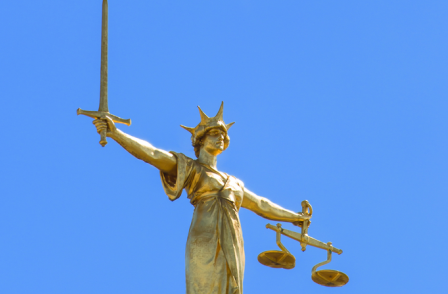
Three years after the initial arrests, following three months of hearings and 49 hours of jury deliberations, there have been no convictions in the Sun six trial.
There were a total of 22 charges at the outset.
Two Sun journalists have been cleared altogether: picture editor John Edwards and former reporter John Troup.
The jury could not agree on the outstanding charges against head of news Chris Pharo, former deputy news editor Ben O'Driscoll, reporter Jamie Pyatt and former managing editor Graham Dudman. So a second trial beckons later this year. A final resolution for them could yet be a year off.
Juries clearly have a great deal of difficulty convicting people of this new crime of journalists conspiring to commit misconduct in a public office by paying cash for stories.
Sun journalist Vince Soodin, charged with the same offence, is facing a retrial after another jury failed to agree a verdict.
Former Sun Whitehall editor Clodagh Hartley was acquitted last year as was Daily Star Sunday journalist Tom Savage.
A former News of the World journalist, who cannot be named for legal reasons, was convicted of this offence late last year but escaped a prison sentence.
These trials have all involved allegations of tabloid journalists engaged in what was the bread and butter of their daily lives – paying people for story tips.
Page two of The Sun still says: "WE PAY FOR YOUR STORIES".
Before Operation Elveden it seems that little thought was given at the paper to whether paying a public employee for a story was against the law.
In the wake of the hacking scandal, News Corp gave a great deal of evidence to police about such payments. As a result Operation Elveden was launched and dozens of journalists and sources were arrested.
During the Sun six trial we heard that many believe News Corp provided this evidence about allegedly illegal payments made by its employees to tie up investigators and reduce the possibility of a corporate prosecution against the company.
Whatever the motive, the result has been a terrible ordeal for individuals: a 6am police raid on the family home, a search as terrified children look on, arrest and questioning, and then a three-year wait before spending three months on trial. Careers will probably never recover. We have to hope that at a personal level, the accused and their families can.
The way these people have been treated you would think they were suspected of committing some of the most horrendous crimes you could imagine.
In fact they were tabloid journalists trying to get the best possible stories for their readers as trained by their employer, the UK's biggest national newspaper publisher.
Remember, looking at the 2007 edition of MacNae's Essential Law for Journalists that would have been on these journalists' desks at the time they were allegedly committing their crimes there was not one word of caution about paying public officials for stories.
To my knowledge the charge of conspiracy to commit misconduct in a public office was first used against a UK journalist in the case of Sally Murrer in 2008. There was no suggestion that she had paid money for stories, she just had off-the-record conversations with a police officer and the trial against her collapsed. It seemed like a bizarre aberration.
But since 2011, the charge has been widely used in what is seemingly a new interpretation of the law imposed retrospectively on journalists to punish what had been custom and practice across the tabloid press since the year dot.
Operation Elveden alone has cost the Met Police more than £10m and involved 56 officers.
There has been no public debate about this new targeting of journalists with the full might of the criminal justice system. It has just happened.
The common law offence of Misconduct in a Public Office can only be leveled at holders of a public office. Juries clearly find it a difficult stretch to make this offence cover journalists by adding the word "conspiracy" to it.
The Crown Prosecution Service needs ask itself whether the public interest will be best served by putting the four remaining defendants, and a new jury, through another trial which could well end in the same deadlocked result.
Email pged@pressgazette.co.uk to point out mistakes, provide story tips or send in a letter for publication on our "Letters Page" blog
